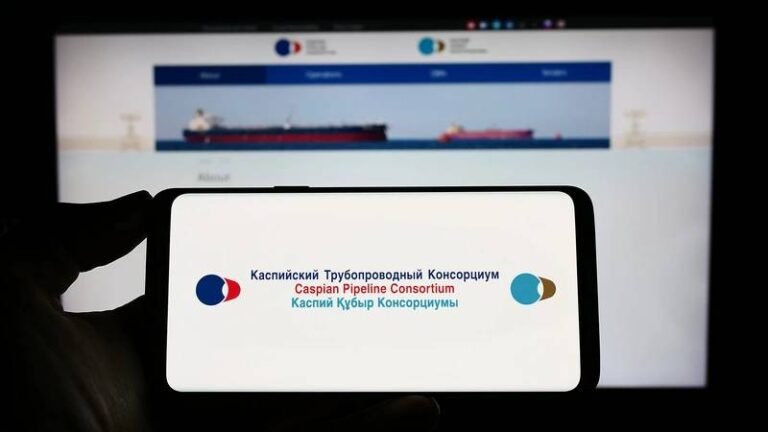The Caspian Pipeline Consortium Wins Legal Battle Over Black Sea Export Terminal
In a significant victory for the Caspian Pipeline Consortium (CPC), a Russian court ruled on Friday that the consortium’s Black Sea export terminal facilities should not be suspended. This decision comes as a relief for Kazakhstan, as it helps avert a potential fall in the country’s oil production and supplies, with the CPC accounting for around 80% of Kazakhstan’s oil exports.
Industry sources revealed a flurry of diplomatic activity between Russia and Kazakhstan regarding the pipeline’s operations leading up to the court ruling. Transneft, Russia’s oil pipeline monopoly, disclosed that its head, Nikolai Tokarev, had a meeting with Askhat Khassenov, the CEO of Kazakh state energy company KazMunayGaz, in Moscow. Both companies are significant stakeholders in the CPC.
Russia’s transport regulator had previously ordered the CPC to suspend operations at two of the three moorings at its Black Sea export terminal following snap inspections after a major oil spill in December. However, the court ruling held the Russian part of the CPC consortium liable and imposed an administrative fine of 200,000 roubles ($2,357) without suspending the exporting facilities.
While it remains unclear when the CPC export terminal will resume normal operations, the consortium declined to comment on the timing. The CPC has faced challenges in recent times, with disruptions to its operations due to various factors, including the ongoing conflict in Ukraine.
Transneft announced the suspension of a mooring at the Black Sea port of Novorossiisk for 90 days following a snap inspection, with a court expected to rule on the matter later on Friday. Oil exports via the CPC pipeline were projected at 1.7 million barrels per day for April, highlighting the importance of the pipeline as a major oil export route for Kazakhstan.
Impact on Kazakhstan’s Oil Exports
Kazakhstan has been exceeding its export quotas within the OPEC+ producer group, primarily due to increased production from the Chevron-led Tengiz oilfield. This has prompted calls from other OPEC+ members, such as Saudi Arabia, for Kazakhstan to reduce production to align with its quotas.
Following a meeting, OPEC+ decided to raise output ahead of schedule, indicating confidence that non-compliant members would adjust their production levels in the coming weeks. The CPC pipeline plays a crucial role in facilitating Kazakhstan’s oil exports and meeting international demand for crude oil.
Despite the legal challenges and operational disruptions, the CPC remains a key player in the global energy market, supporting Kazakhstan’s oil industry and contributing to the stability of oil supplies in the region.
With ongoing developments in the energy sector and geopolitical landscape, the CPC’s resilience and ability to navigate complex legal issues demonstrate its importance as a vital link in the supply chain of oil exports.
As the consortium continues to address operational challenges and regulatory scrutiny, its role in facilitating Kazakhstan’s oil exports and maintaining stability in global oil markets remains pivotal for the energy industry.
($1 = 84.4000 roubles)
(Source: Reuters)

